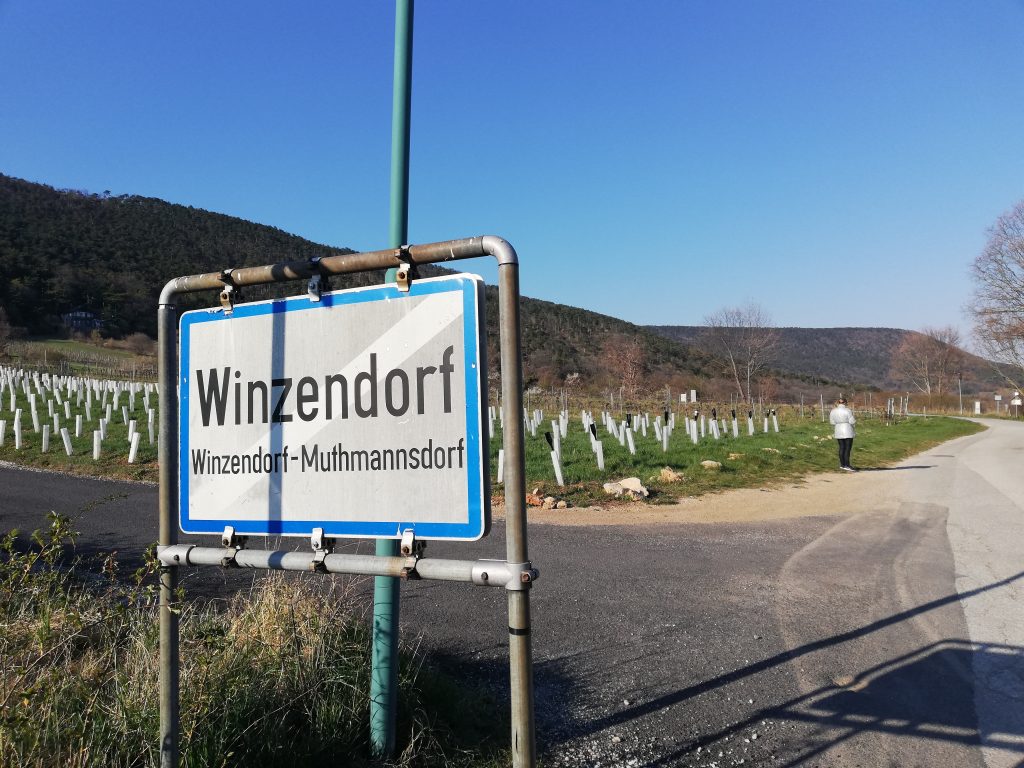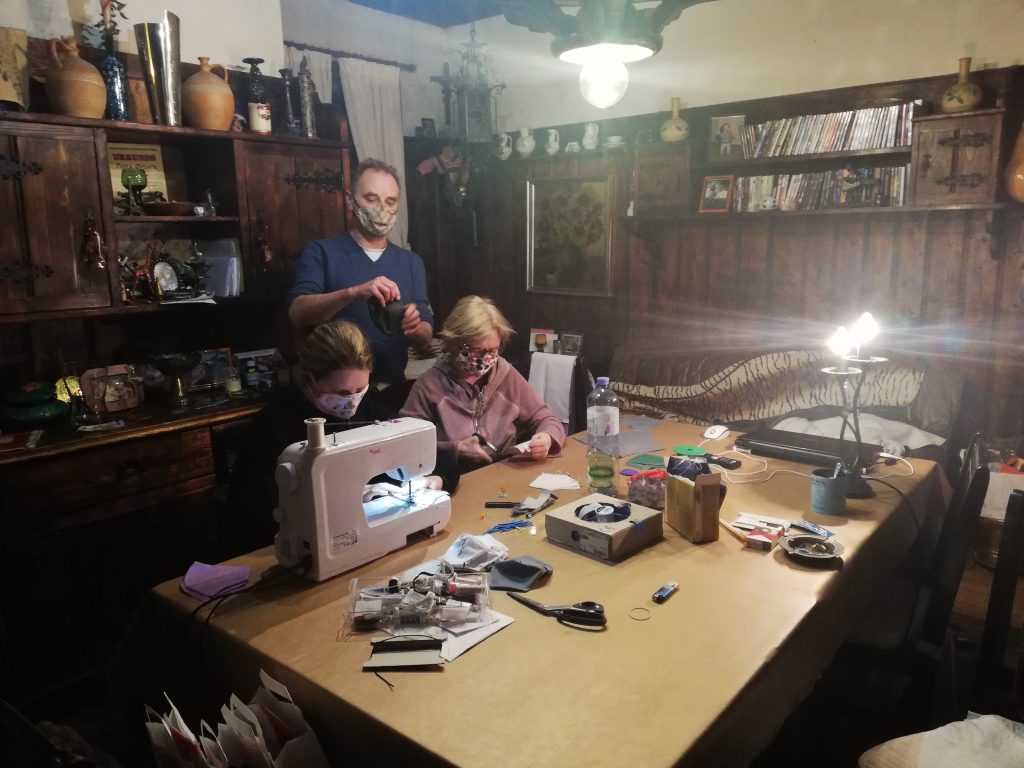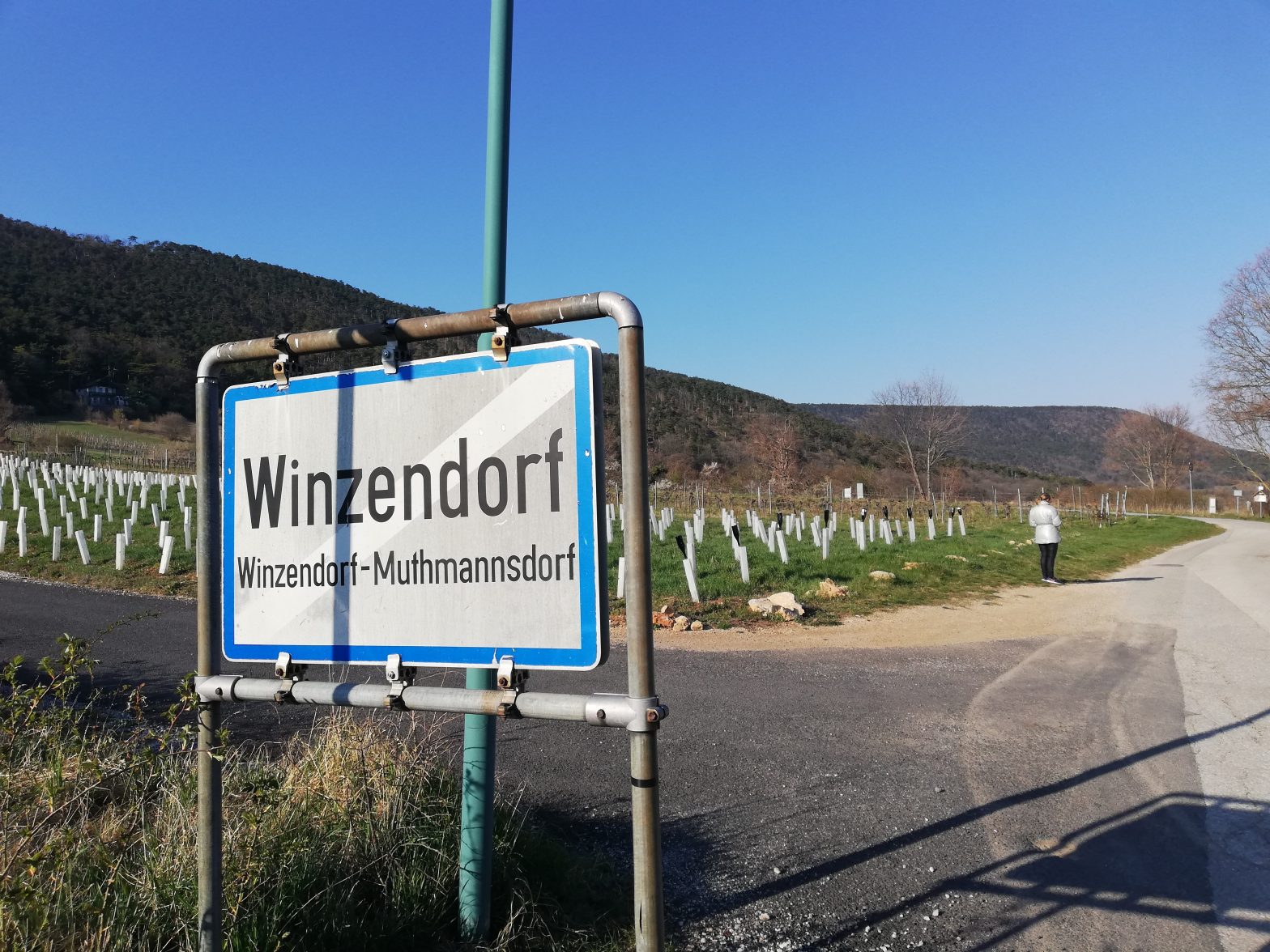While travelling through the idyllic province of Lower Austria (Niederösterreich in the native tongue) one sees lush forests, fertile farmland, endless vineyards…
and Winzendorf.

With a population just shy of 2,000, Winzendorf is one of those “blink-and-you’ll-miss-it” towns with one grocery store, two churches, and no petrol station. The train hoots when it comes around the corner to warn those crossing the tracks and a river burbles between the main road and the old stone quarry. In fact, there is no visible evidence that would reveal Winzendorf to be the epicentre of the European trade in illegal surgical masks.
In the heart of this charming little town nestled between the mountains of the “Hohe Wand” (directly translated, the High Wall) lies a dark and frightening secret. For each and every one of the delightful wooden houses is not only a family home, but a center of illicit industry. Every day, thousands and thousands of surgical masks are cut, sewn, and shipped out of Winzendorf. Where the average Austrian builds a wine cellar, the Winzendorfer sets up his array of sewing machines, ready to sate the world’s desperate thirst for medical equipment. After dinner, the table is cleared, the dishes are washed, and the dinner table once again assumes its industrial pall: sewing machines, lengths of cloth, needles, thread, scissors, and other arcane tools are prepared for the night shift.

The source of labour is as questionable as the means of production. The teachers at the primary school are only paid for half-days, because the children must return to the sewing machines by 12:00. A very different definition of homework. Visitors and travellers are not excluded –any person spending more than 2 hours legally changes from a “guest” to a “guest-worker”. The fact that a train leaves every 3 hours is the result of a long-standing agreement with the national railway service.
So it is that I became involved in the underground mask business – drugged and kidnapped after waiting for a train that would never come.
I awoke an hour later, chained to the end of a seemingly endless table almost overflowing with sewing machines. On both sides were men and women in a similar predicament. Judging by their pale skin, I could tell that the only light they ever saw came from the harsh, naked lightbulb hanging over our heads.
“Welcome!” called a voice from the corner of the room, and I turned my head to see a bearded man puffing on his cigarette. The Father, the other workers called him.
“The rules are simple: 50 masks a day in return for three meals and a bed. Less than 40 masks means the next day will be a hungry one, and less than thirty…” his voice trailed off as he nodded ominously to The Grandmother sitting in her rocking chair, a whip lying across her knees.
“You’re running a sweatshop from your basement?” I asked incredulously.
The Father laughed raucously and threw the window open, filling the room with freezing mountain air. “It’s not a sweatshop if you’re too cold to sweat!”
Still chuckling, he turned around and drawled, “50 masks!” as he left the room.
That was three weeks ago. Three long weeks of “Measure, cut, and sew!” as The Grandmother is fond of cackling. It is my only hope that this story will somehow break free into the free world, that no one will suffer my fate. But what if I deserved this? What if this is all punishment for some egregious sin against the textile industry?
As the sign hanging over the doorway reminds us, “As you reap, so shall you sew.”


Well written
🙏
Stop wasting time and get back to sewing you lazy bum! Otherwise I’ll call Grandmother to whip you!!!
(very funny though)